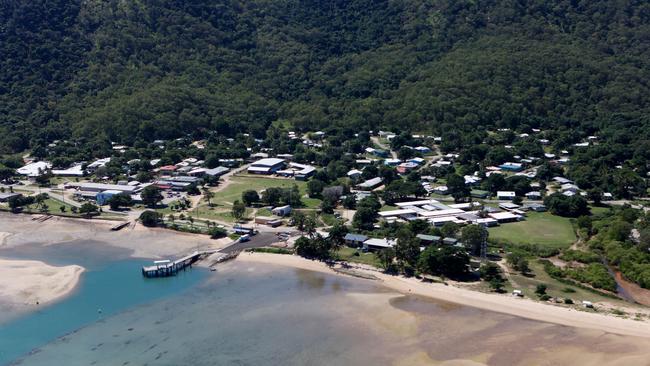Dodgy life insurance tactics in royal commission spotlight
Lucrative deals between big underwriters and local companies that operate high-pressure call centres are in the firing line.

Lucrative deals between some of the world’s largest life insurance underwriters and local companies that operate high-pressure outbound call centres are in the firing line of the royal commission and financial watchdogs.
The royal commission will this week take aim at the fastest-growing slice of the life insurance industry, the “direct” channel, which draws in hundreds of millions in revenue each year.
Despite the profitable revenue stream, which has brought about four million life insurance policies into force, large life insurers providing the underwriting for the policies hawked by outbound call centres have barely tracked how, or to whom, insurance was being sold.
The Australian Securities & Investments Commission last month told life insurance companies to shut down outbound sales centres, the hallmark of the so-called “direct” insurance model, or face legal action. This follows concerns about useless policies being foisted on unsuspecting customers and the high rate of claim rejection for policies sold through call centres.
Freedom Insurance, which last week was forced to overhaul its business after ASIC banned its revenue model, is under investigation by the regulator for using high-pressure sales tactics to sell policies underwritten by global insurance behemoth Swiss Re.
In June, the royal commission blemished the reputation of outbound sales group Select AFSL, which runs a telemarketing centre in Chatswood in Sydney, after revealing the group used high-pressure sales tactics to push Let’s Insure-branded funeral plans on to Aboriginal customers, including in the heavily disadvantaged Palm Island region. Let’s Insure policies were underwritten by St Andrew’s, the life insurance arm of Bank of Queensland, which it is currently trying to sell to Freedom Insurance. However, the $65m transaction has come under a cloud after ASIC encountered resistance when trying to shore up standards at Freedom.
The Australian can also reveal global insurance giant Hannover Life Re was charging Aboriginal people on Palm Island a higher rate for life insurance than Select AFSL. Select AFSL has now been forced to stop selling life insurance policies altogether after St Andrew’s withdrew its underwriting deal.
The Australian can also reveal that Select AFSL was previously distributing We Protect-branded policies underwritten by the local arm of German insurance giant Hannover Re.
Both St Andrew’s and Hannover life insurance featured prominently in a Commonwealth Bank audit of disadvantaged customers on Palm Island, off the coast of northern Queensland. According to census data from the Australian Bureau of Statistics, Palm Island is one of the 10 most disadvantaged areas in Australia. Nearly all of the island’s 2500 residents are either Aboriginal or a Torres Strait Islander.
“Select AFSL stopped selling We Protect-branded policies in early 2013 pursuant to entering into a new distribution agreement with St Andrew’s Life to sell Let’s Insure branded policies,” said Samantha Richardson, head of marketing for Select AFSL parent company BlueInc.
Hannover Life Re declined to comment on its Palm Island customers or its relation with Select AFSL. Gerd Obertopp, head of Hannover Life Re in Australia, said it was “group policy that the company does not comment on matters pertaining to former or current business partners”.
During the banking royal commission’s hearings into funeral and life insurance sold to Aboriginal and Torres Strait Islander people, a Commonwealth Bank audit of its customers on Palm Island was tabled. CBA serves a third of all Palm Island residents and audited the direct debits of its customers to examine money that was being deducted for “non-essential” services.
According to the audit, Hannover Life Re was the life insurance company with the highest number of transactions of the top 20 companies charging customers for “non-essential” debits. Hannover charged customers 383 transactions for a total of $16,401 during a five-month period. St Andrew’s Life Insurance had charged the Palm Island residents on 313 transactions for a total of $12,857, over the same period. Life insurers TAL and NobleOak were also in the top 20.
NobleOak declined to comment, while a spokeswoman for TAL said the hearings “highlighted the importance of a strong regulatory framework” when dealing with disadvantaged Australians, but that appropriately designed and responsibly sold funeral insurance was “a valued product for many people in the Australian community”.
In the audit, CBA’s customer advocate, Josh Anderson, said there was “a large amount of direct debits that are non-essential services targeting these customers” and that giving the information to the Indigenous Consumer Assistance Network would help them “end these costly financial arrangements for specific direct-debit companies”.
Ms Richardson said We Protect had “not sold a single policy to a Palm Island resident” and that the direct debits for Hannover Re “relate to other brands underwritten by Hannover Re”. However, The Australian understands nearly all of the St Andrew’s policies sold to Palm Island residents were sold by Select AFSL.
Russel Howden, the managing director of Select AFSL, was accused of not being “frank” with the financial services royal commission after he sought to prevent information being disclosed to the inquiry.



To join the conversation, please log in. Don't have an account? Register
Join the conversation, you are commenting as Logout